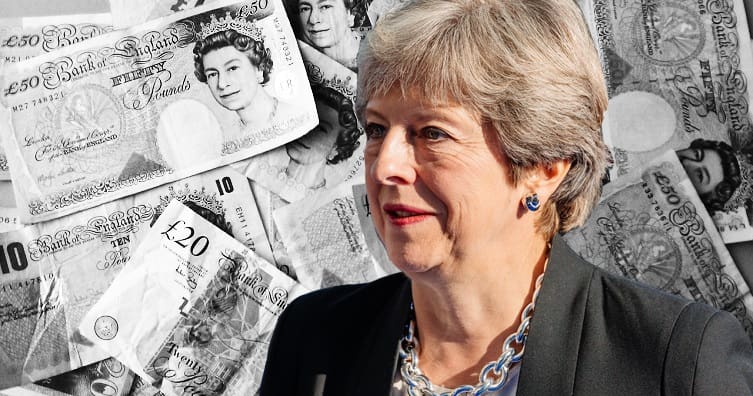Government to freeze tuition fees and raise repayment threshold
The government has announced that it will freeze tuition fees and raise the repayment threshold, but is it enough?
 Credit: EU2017EE Estonian Presidency - Flickr
Credit: EU2017EE Estonian Presidency - Flickr
Theresa May has announced that tuition fees will be frozen at £9,250 a year in an attempt to win back young voters.
The repayment threshold for student loans will also increase from £21,000 to £25,000 a year, potentially saving graduates thousands of pounds over the 30-year repayment period.
Labour, which along with the Green Party has pledged to abolish tuition fees altogether, has labelled the Conservative's plans as "desperate".
As always, there's more to these plans than meets the eye. We'll run through each aspect now, one by one.
What’s on this page?
The freezing of tuition fees

In 2012, the Conservative-lead coalition government increased the maximum tuition fee from just over £3,000 to £9,000 a year. Most universities charged the top amount, but this September the cap increased once again to £9,250.
The plan was to add another £250 to the maximum amount in 2018/19 (taking the cost to £9,500 a year), but the Prime Minister has now promised to freeze fees at £9,250 for next year's students.
However, fees will only be frozen for one year, meaning that the students of 2019/20 could still be paying more than the current cap.
What's more, freezing tuition fees at £9,250 assumes that this is a reasonable amount that students will be happy to pay. The reality, of course, is that the tripling of fees in 2012 was met with fierce protests, and the subsequent increases have also been poorly received.
The increased repayment threshold

The increased repayment threshold might actually be a good thing. The cost of living in the UK has risen with inflation since the new fee system was introduced in 2012, so £21,000 is now worth less than it was at the time.
Raising the threshold to £25,000 means that anyone earning less than this will no longer have to repay their student loan, and anyone earning over it will repay less each month than they were before.
The increase will come into effect in April 2018, with the threshold then rising every year in line with the average growth in annual earnings. This could save graduates thousands of pounds in repayments before their debts are wiped, or £360 a year for anyone currently earning over £25k.
However, it's worth noting that this represents a double u-turn for the government. They had originally said that the repayment threshold would increase, only to go back on that and freeze it at £21,000 a year.
The decision to increase it, although welcomed by those who have campaigned for them to do so (including us!), does underline the fact that the government can – and will – play fast and loose with the terms of the student loan agreement, for better or for worse.
The interest rate of the loan

Theresa May has also promised to review the interest rates for student loans, which this autumn went up to 6.1%. This may sound promising, but for many students it's nothing more than an empty gesture.
Student debt is cancelled after 30 years, and it's estimated that 77% of students will never repay their loan in full. For that reason, increasing or decreasing the interest rate is just making small changes to a figure that most people won't get close to reaching anyway.
If you want an example to make it clearer, try this on for size: the interest could be 1,000,000% and it would make absolutely no difference to how much most students would repay.
Is it enough?
It's surely not a coincidence that Theresa May has announced these plans at the first Conservative Party conference since the 2017 election, which saw the highest young voter turnout in a generation.
The huge number of 18–24 voters was seen by many as a factor in Labour taking 40% of the vote (with the Tories just ahead on 42.4%), and the government has since been under pressure to win the support of the younger generation.
 Credit: Anthony Bennison - Flickr
Credit: Anthony Bennison - Flickr
Freezing tuition fees for one year is unlikely to win the hearts of too many young voters, but increasing the repayment threshold is a welcome move. It's certainly better than simply decreasing the interest rate, which as we explained, makes very little difference to most people.
However, with all of this focus on graduates, it's easy to forget another issue that we feel is arguably even more pressing.
As we reported last month, because maintenance loans are calculated based on household income, parents are expected to contribute up to £5,523 each year to make up the shortfall. Not only is this unfeasible for many families, but it's also not made clear enough to students and parents alike.
If the government wishes to gain the support of the student population, it should perhaps look at making the much-needed improvements to the maintenance loan system, rather than trying to convince them that freezing fees at £9,250 is a kind gesture.
The rules always seem to be changing, so make sure you understand your student loan repayments.








